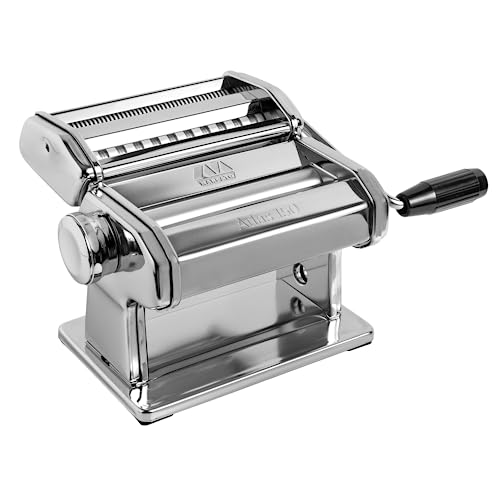Stainless Steel
One of the most common materials used in pasta machines is stainless steel. Stainless steel is known for its durability and resistance to corrosion, making it an ideal choice for kitchen appliances. Pasta machines made from stainless steel are generally sturdy and long-lasting, able to withstand the pressure and strain of consistently rolling out pasta dough.
Aluminum
Another material commonly used in pasta machines is aluminum. Aluminum is a lightweight metal that is also durable and resistant to rust. Pasta machines made from aluminum are often more affordable than stainless steel ones, making them a popular choice for home cooks looking to experiment with making their own pasta at a lower cost.
Plastic
Some pasta machines are made from plastic, particularly the less expensive models. Plastic machines are lightweight and easy to clean, but they may not be as durable or long-lasting as stainless steel or aluminum machines. Plastic machines are often more suitable for occasional use or for those who are just starting to experiment with making their own pasta.
Chrome-Plated Steel
Chrome-plated steel is another material used in pasta machines. This type of steel is coated with a layer of chrome, which gives it a more aesthetic appeal and shine. Pasta machines made from chrome-plated steel are often sturdier and more durable than plastic machines but not as expensive as stainless steel ones. They can be a good option for those who want a balance between durability and cost.
Brass
Brass is a less common but still used material for pasta machines. Brass is known for its excellent heat conductivity and is often used for professional-grade pasta machines. Pasta machines made from brass can be quite expensive but are highly durable and efficient at rolling out pasta dough. They are often favored by professional chefs and serious home cooks who want top-quality results.






